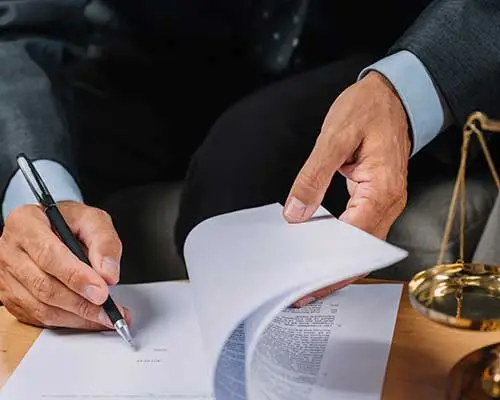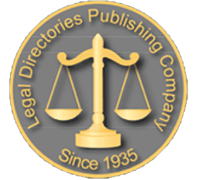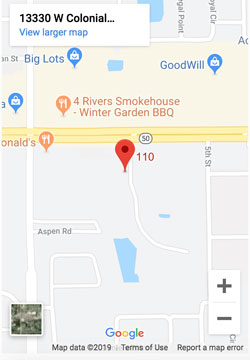How to Prepare for a Breach of Contract Lawyer Free Consultation
Choosing the right attorney is one of the most important decisions you’ll make when facing a contract dispute. You need a partner you can trust, and that relationship starts with the first conversation. A breach of contract lawyer free consultation isn’t just for the lawyer to hear your story; it’s your chance to interview them. Does their communication style work for you? Do they have experience with cases like yours? This initial meeting is the perfect setting to find out. By preparing in advance, you can steer the conversation, ask insightful questions, and make an informed decision about who you want on your team. Here, we’ll outline the exact steps to take to prepare for this crucial meeting.
Key Takeaways
- Use the consultation as a two-way interview. This is your no-risk opportunity to get a professional opinion on your case while also evaluating if the attorney’s expertise and communication style are the right fit for you.
- Organize your documents and timeline beforehand. Arriving with the contract, key communications, and proof of your financial loss allows the attorney to give you a more accurate assessment of your case from the start.
- Ask about the entire process, not just the problem. Use the meeting to get clarity on the attorney’s fee structure, potential case costs, and what happens immediately after you decide to hire them.
What is a Free Breach of Contract Consultation?
If you’re dealing with a broken contract, the idea of talking to a lawyer can feel overwhelming, especially when you’re worried about the cost. That’s where a free consultation comes in. Think of it as an introductory, no-pressure conversation. It’s your chance to share your story with a legal professional and get a preliminary take on your situation without any financial commitment.
This initial meeting is a two-way street. It allows an attorney to understand the basics of your case and determine if they can help. At the same time, it gives you the opportunity to get a feel for the lawyer and the firm. You can ask questions, learn about your potential legal options, and decide if you feel comfortable moving forward with them. It’s a crucial first step that provides clarity and helps you make an informed decision about how to proceed.
What to Expect
During a free consultation, you can expect to do most of the talking at first. The attorney will listen as you explain what happened, what the contract stipulated, and how the other party failed to meet their obligations. They will likely ask clarifying questions to get a full picture of the dispute.
The goal isn’t to solve your entire case in one meeting. Instead, the attorney will give you an initial assessment of your situation. They might identify the strengths and weaknesses of your potential claim and outline the possible next steps. You should leave the meeting with a better understanding of whether you have a valid breach of contract case and what pursuing it might involve.
How It Works & How Long It Takes
Getting started is usually as simple as making a phone call or filling out an online form to schedule a meeting. Most initial consultations last between 15 and 30 minutes, though some may be longer depending on the complexity of your issue. The meeting can take place over the phone, via video conference, or in person.
The attorney will use this time efficiently to gather the essential facts. Be prepared to give a concise summary of the events. While it’s a relatively short meeting, it’s designed to be long enough for the legal team to assess your case and for you to determine if the firm is the right fit for you. You can contact our office to see how the process works firsthand.
Common Myths, Busted
One common myth is that a free consultation is a high-pressure sales pitch. In reality, it’s an informational session. Reputable attorneys use this time to genuinely evaluate your case and explain how they can help, not to force you into a decision. Another misconception is that you need to have everything perfectly figured out beforehand. Don’t worry—the attorney is there to help you make sense of the details.
Finally, some people believe “free” means the advice isn’t valuable. This couldn’t be further from the truth. Firms offer free consultations because it’s the most effective way to determine if a potential client has a case they can successfully handle. It’s a professional courtesy that serves as the foundation for a strong attorney-client relationship.
What is a Contract Breach?
At its core, a breach of contract happens when one party doesn’t hold up their end of a legally binding agreement. Think of it as a broken promise that has legal consequences. This could look like a client who refuses to pay an invoice, a vendor who fails to deliver the goods you paid for, or a contractor who doesn’t complete a project as specified. When you enter into a contract, you have a reasonable expectation that everyone involved will follow through on their duties. When they don’t, it can disrupt your business, cost you money, and create a lot of stress.
Understanding whether you have a valid claim is the first step. Not every disagreement or unmet expectation qualifies as a legal breach. The issue often comes down to the specific terms of the agreement and the significance of the failure. That’s why having a clear, written contract is so important—it serves as the roadmap for your business relationship. If you find yourself in a situation where a promise has been broken, knowing the basics of contract disputes can help you figure out your next move and prepare for a conversation with an attorney.
The Main Types of Breaches
Contract breaches generally fall into two categories: material and minor. A material breach is a major failure that strikes at the heart of the agreement, making it impossible to get the result you bargained for. For example, if you hired a developer to build a functional e-commerce website and they delivered a site that doesn’t process payments, that’s a material breach.
A minor breach, on the other hand, is a smaller issue where the main purpose of the contract is still fulfilled. If you hired a painter to paint your office beige and they used a slightly different shade of beige, it’s likely a minor breach. You still got a painted office, but it wasn’t exactly to spec. With a minor breach, you can typically sue for any financial loss the difference caused, but not for a complete contract cancellation.
What Makes a Strong Case?
To successfully pursue a breach of contract claim, you generally need to demonstrate four key things. Think of these as the building blocks of your case. First, you have to prove that a valid contract actually existed. Second, you must show that the other party broke the terms of that agreement. Third, you need to provide evidence that you suffered a financial loss because of their failure. Finally, you have to establish that the other party was responsible for the breach. An attorney will look for clear evidence, like a customer who didn’t pay a bill or a supplier who failed to deliver a critical part on time.
Your Potential Legal Remedies
If a court finds that a contract was breached, there are a few ways it can make things right. The most common solution is legal remedies, which usually means awarding money to cover your losses. This is called compensatory damages, and it’s designed to put you in the financial position you would have been in if the contract had been fulfilled.
In some cases, money isn’t enough. That’s where equitable remedies come in. A court might order the other party to perform a specific action, like completing the work they promised to do. This is known as “specific performance.” Another equitable remedy is “restitution,” where the breaching party has to return any property or money you gave them.
Florida’s Statute of Limitations
It’s important to know that you don’t have an unlimited amount of time to file a lawsuit. In Florida, there’s a deadline known as the statute of limitations. For breach of contract cases, you have five years to file a claim for a written contract and four years for an oral (or spoken) contract. This clock typically starts ticking from the date the breach occurred. If you wait too long and miss this deadline, you could lose your right to take legal action altogether. That’s why it’s so important to act promptly if you believe someone has violated your agreement.
Gather These Key Documents for Your Consultation
Walking into a consultation prepared is the best way to make the most of your time with an attorney. When you have your key documents organized, your lawyer can get a much clearer picture of your situation from the start. It helps them quickly assess the strength of your case and give you more specific advice. Think of it as doing a little homework to set yourself up for a productive conversation.
The Contract and Any Amendments
Let’s start with the most important document: the contract itself. This is the foundation of your entire case. Find the original, signed agreement and read through it again. Just as crucial are any changes, addendums, or amendments made along the way. These documents show how the agreement evolved and what the final terms were supposed to be. A clear, written contract is your strongest piece of evidence, as it outlines exactly what each person promised to do. Having a solid contract is a core part of sound business law.
All Relevant Communications
The contract doesn’t always tell the whole story. The back-and-forth between you and the other party can provide critical context. Your next step is to pull together all relevant communications about the agreement. This includes emails, text messages, letters, and even notes you took during phone calls or meetings. This correspondence can help demonstrate each party’s intent, show when problems started to arise, and document any attempts you made to resolve the issue before seeking legal help. Organize them chronologically if you can—it will make explaining the timeline much easier.
Evidence of the Breach
Now, you need to show exactly how the other party failed to hold up their end of the deal. This requires concrete evidence of the breach. What this looks like depends on your specific situation. It could be unpaid invoices and reminder emails if a client didn’t pay you. It might be photos of incomplete or shoddy work if a contractor didn’t finish a job properly. Or it could be delivery records and supplier communications if you never received the goods you paid for. Gather anything that proves the other party didn’t do what they promised in the contract.
Proof of Your Damages
Finally, you need to show how the breach hurt you, which usually means demonstrating a financial loss. It’s not enough to prove the contract was broken; you also have to prove that the breach caused you measurable damages. Collect documents like bank statements, receipts for materials you had to buy, invoices from another professional you hired to fix the problem, or calculations showing your lost profits. The goal is to create a clear financial trail that connects the other party’s failure directly to the money you lost. This is a key part of any business litigation case.
How to Prepare for Your Consultation
Walking into a legal consultation can feel intimidating, but a little prep work can make all the difference. Taking some time to organize your thoughts and documents beforehand will help you have a much more productive conversation. When you arrive prepared, your attorney can quickly get up to speed on your situation, which means they can provide more specific, valuable advice. Think of it as creating a roadmap for the meeting—it ensures you cover all the important points and leave with a clear understanding of your options.
Create a Timeline of Events
Before you speak with an attorney, take some time to map out the story of what happened. Start from the beginning and list every key event in chronological order. When was the contract signed? What were the important conversations or milestones? When did you first notice a problem? What was the specific action (or inaction) that caused the breach? You don’t need to write a novel, but a simple, point-form timeline will be incredibly helpful. Be ready to share your story. The lawyer will ask questions to understand what happened, and having a clear sequence of events makes it easier for your business litigation attorney to spot the critical legal issues in your case.
List Your Questions for the Attorney
This consultation is a two-way street. While the attorney is evaluating your case, you should be evaluating them. To do this effectively, come prepared with a list of questions. This ensures you won’t forget anything important in the moment. You can ask about their experience with similar breach of contract cases, the potential strengths and weaknesses of your position, and the possible legal remedies. The main goal is to help you decide if you want to hire them. Don’t be shy about asking about their communication style and fee structure, too. This is your chance to gather the information you need to confidently evaluate the firm’s attorneys and choose the right partner for your case.
Set Clear Goals for the Meeting
What do you hope to achieve with this consultation? Your goal might be to simply understand if you have a valid legal claim. Or maybe you want to get a realistic idea of the potential costs and timeline involved. Perhaps your main objective is to find an attorney you connect with and trust. Whatever it is, defining your goals beforehand will help you stay focused during the meeting. Use the free consultation to learn your legal options and decide if the lawyer is a good fit for you. When you schedule your consultation, knowing what you want to accomplish will help you steer the conversation and ensure you walk away with the clarity you need to decide on your next steps.
Get the Most Out of Your Consultation
You’ve done the prep work, gathered your documents, and outlined your timeline. Now it’s time for the consultation itself. This meeting is a two-way street: while the attorney is evaluating your case, you are also interviewing them to see if they’re the right fit. To make the most of this opportunity, go in with a clear idea of what you need to learn. Being an active participant will help you walk away with a solid understanding of your legal position and a clear path forward.
Key Topics to Discuss
The most important thing you can do is tell your story clearly and concisely. Start from the beginning and walk the attorney through the timeline of events you prepared. Be honest and don’t leave out details, even if you think they might weaken your case—your attorney needs the full picture to give you accurate advice. This is your chance to explain how the breach has impacted you or your business. A good lawyer will listen carefully and ask questions to understand the nuances of your business law dispute.
Ask About Potential Outcomes
It’s crucial to discuss what a successful outcome looks like for you and what the attorney believes is realistically achievable. Ask them for an honest assessment of your case’s strengths and weaknesses. This is also the time to talk about money. Don’t be shy about asking how the firm charges for its services and what other costs you might expect, such as filing fees. Understanding the potential financial commitment upfront helps you make an informed decision and gives you a sense of the attorneys’ transparency.
Clarify What Evidence is Needed
While you’ve already gathered key documents, the attorney may identify gaps or require additional proof to build a strong case. Ask them specifically what other evidence would be helpful. They might suggest looking for specific emails, financial statements, or witness testimony that could strengthen your position. This proactive step shows you’re serious about your case and ready to be a partner in the legal process. Getting a clear list of necessary evidence allows you to start collecting it right away.
Explore Alternative Resolutions
A lawsuit isn’t always the only or best option. Ask the attorney about alternative dispute resolution methods like mediation or arbitration. These processes are often less formal, faster, and more cost-effective than going to court. In mediation, a neutral third party helps both sides reach a settlement. In arbitration, a neutral arbitrator hears both sides and makes a binding decision. Discussing these alternatives can reveal a more strategic path to resolving your contract dispute. When you’re ready to explore your options, you can contact an attorney to schedule a consultation.
How Do Legal Fees Work?
Let’s talk about one of the biggest questions on everyone’s mind when they consider hiring an attorney: the cost. Understanding how legal fees work is crucial, and your initial consultation is the perfect time to get clarity. The goal is to move forward with a clear picture of the financial side of your case so there are no surprises down the road. Different attorneys have different ways of billing, and the structure often depends on the type of case. Don’t hesitate to ask direct questions about how the lawyer charges for their time and what other expenses you should anticipate.
Common Attorney Fee Structures
When you discuss payment, you’ll likely hear about a few standard fee arrangements. The most common is the hourly rate, where you pay for the attorney’s time spent working on your case. Another option is a flat fee, which is a single, upfront cost for a specific legal task. For some cases where you’re seeking monetary damages, an attorney might work on a contingency fee basis. This means their fee is a percentage of the money you recover, and if you don’t win, you may not owe them any attorney fees. Finally, many lawyers require a retainer, which is an upfront payment that the firm holds in a trust account and bills against as they work.
Other Potential Case Costs
Beyond the attorney’s fees, it’s important to remember that lawsuits come with other expenses. These are the out-of-pocket costs necessary to move your case forward, and they are typically your responsibility regardless of the fee structure. These can include court filing fees, the cost of serving legal papers to the other party, fees for expert witnesses who might need to testify, and discovery costs like paying for deposition transcripts. While it’s impossible to predict the exact total at the outset, your attorney can give you an estimate of these potential case costs so you can make an informed decision about whether the potential recovery is worth the investment.
Your Payment Options
During your consultation, be sure to ask about the specific payment options the firm offers. If you’re working with an attorney on an hourly or flat-fee basis, find out when payments are due and what payment methods they accept. If a contingency agreement is an option for your case, clarify what costs you would still be responsible for, even if you don’t win. Some firms may offer payment plans for certain fees, so it never hurts to ask. Understanding your financial obligations is a critical step in preparing for a business law & litigation matter, and this initial meeting is your opportunity to get all the details you need.
How to Choose the Right Contract Attorney
The free consultation isn’t just for the attorney to assess your case—it’s your chance to interview them. Finding the right legal partner is one of the most critical steps you’ll take. You need someone with the right skills, a communication style that works for you, and a solid professional reputation. Think of it like hiring a key team member for a high-stakes project. Pay attention to their experience, how they communicate, and their professional standing to make sure you’re putting your case in the best possible hands.
Look for Relevant Experience and Expertise
When you’re dealing with a contract dispute, you don’t want a generalist. You need an attorney with a deep understanding of Florida’s business and real estate law. During your consultation, don’t be shy about asking direct questions about their background. Find out how long the lawyer has been practicing and what kinds of cases they’ve handled, especially ones like yours. A great question to ask is, “Have you managed contract disputes similar to mine before, and what were the general outcomes?” An experienced contract attorney will be able to point to a track record of handling complex cases, giving you confidence in their ability to manage yours effectively.
Find a Communication Style You’re Comfortable With
Legal battles can be stressful and confusing, so you need an attorney who can explain things clearly and make you feel heard. Your comfort level with the lawyer is important when making your decision. During the consultation, notice how they talk to you. Do they break down complex legal terms into plain English? Do they listen patiently to your story and answer your questions without making you feel rushed? You’ll be working closely with this person, so it’s essential to find someone you can trust and communicate with openly. You want a partner who keeps you informed, not one who leaves you in the dark.
Check Their Standing with The Florida Bar
Before you sign a retainer agreement, do a quick background check. Every lawyer licensed to practice in the state is a member of The Florida Bar, which maintains public records for every attorney. You can easily find a lawyer on their website to verify that they are in good standing and see if they have any history of disciplinary action. This simple step takes just a few minutes and provides peace of mind that you are hiring a credible and respected professional. It’s a crucial part of your due diligence that ensures the attorney you choose meets the state’s professional and ethical standards.
What Happens After the Consultation?
Once you’ve had a productive initial consultation and feel confident about the attorney you’ve chosen, you’ll move into the next phase of the legal process. This is where the conversation turns into a concrete plan of action, shifting from discussing possibilities to taking decisive steps. It’s a critical moment where you formalize your professional relationship with the lawyer, gain a clear understanding of the road ahead, and learn what your immediate responsibilities are. This stage is all about building a strong partnership. Your attorney will handle the legal complexities, but your active participation is essential for success.
Think of this as the official start of your journey toward a resolution. The initial meeting was about assessing the situation; now, it’s about execution. You’ll transition from being a potential client to an active partner in your own case. This involves signing formal paperwork, creating a shared understanding of the case timeline, and beginning the crucial work of evidence collection. By understanding what’s required of you—from signing agreements to organizing documents—you can work more effectively with your legal team. Taking these next steps seriously not only sets the foundation for a strong case but also helps demystify the process, giving you a sense of control and clarity as you move forward toward achieving your legal goals.
The Retainer Agreement
If you and the attorney decide to work together, the first official step is signing a retainer agreement. Think of this as the formal contract between you and your law firm. This document clearly outlines the terms of your legal representation, including the fee structure, payment schedule, and the specific services the attorney will provide. It’s crucial to read this agreement carefully and ask questions about anything you don’t understand. The agreement will also detail the legal strategy, which could involve actions like demanding the other party fulfill their contractual duties, a remedy known as specific performance.
The Expected Case Timeline
One of the most common questions is, “How long will this take?” While your attorney can provide an estimated timeline, the exact duration of a breach of contract case can vary widely. The complexity of your dispute, the amount of evidence involved, and the other party’s willingness to negotiate all play a significant role. Some cases resolve quickly through settlement discussions, while others may proceed to litigation, which takes longer. Your attorney will explain the different phases of the legal process and give you a realistic idea of what to expect based on the unique nature of your case.
Your Next Steps
After signing the retainer, your role becomes an active one. Your primary task is to work with your attorney to gather all the necessary documentation. This means collecting every piece of paper and digital file related to the contract and the breach, including emails, text messages, invoices, and any other correspondence. It’s also important to maintain open and consistent communication with your legal team. By being responsive and organized, you help your attorney build the strongest possible case on your behalf and ensure you’re prepared for every development.
Related Articles
- Contract Disputes – Legal Counsel P.A.
- When to Hire an Attorney for Breach of Contract
- business contracts Archives – Legal Counsel P.A.
- Business Contract Lawyers – Legal Counsel P.A.
- Palm Harbor Florida Business Lawyers – Legal Counsel P.A.
Frequently Asked Questions
What if our agreement was never put in writing? Can I still take legal action? Yes, you absolutely can. In Florida, oral or verbal contracts can be just as legally binding as written ones. The main challenge, however, is proving the terms of the agreement since there isn’t a signed document to reference. Your case will rely on other evidence, such as emails, text messages, payment records, or testimony from anyone who witnessed the agreement. It’s also important to know that the deadline for filing a lawsuit is shorter for oral contracts, so it’s best to act quickly.
How much will it really cost to pursue a breach of contract case? The total cost can vary quite a bit depending on how complex your case is and whether the other party is willing to cooperate. Legal fees are often structured in one of a few ways: an hourly rate, a single flat fee for a specific service, or a contingency fee where the attorney’s payment is a percentage of the money you recover. You should also plan for other case-related expenses, like court filing fees. The best approach is to discuss fees and potential costs openly during your initial consultation so you have a clear financial picture from the start.
Do I have to go to court to resolve my contract dispute? Not necessarily. In fact, many contract disputes are resolved long before they ever reach a courtroom. Your attorney may first try to settle the issue through direct negotiation with the other party. Another common path is mediation, where a neutral third party helps you both find a mutually agreeable solution. These alternatives are often faster and less expensive than a formal lawsuit, and a good attorney will explore all reasonable options to get you the best result.
What happens if I wait too long to do something about the breach? Waiting is one of the biggest risks you can take. Florida has a strict deadline, known as the statute of limitations, for filing a lawsuit. For a written contract, you have five years from the date of the breach to file a claim. For an oral contract, that window shrinks to four years. If you miss this deadline, the court will likely refuse to hear your case, and you will lose your right to seek a legal remedy, no matter how strong your claim is.
What is the main goal of the free consultation? Think of the free consultation as a no-pressure, fact-finding meeting for both you and the attorney. Your goal is to share your story, get a professional’s initial take on your situation, and understand your potential legal options. It’s also your opportunity to interview the lawyer and see if their experience and communication style are a good fit for you. There’s no obligation to hire the firm, so you can walk away with valuable clarity and a better sense of how you want to move forward.

















